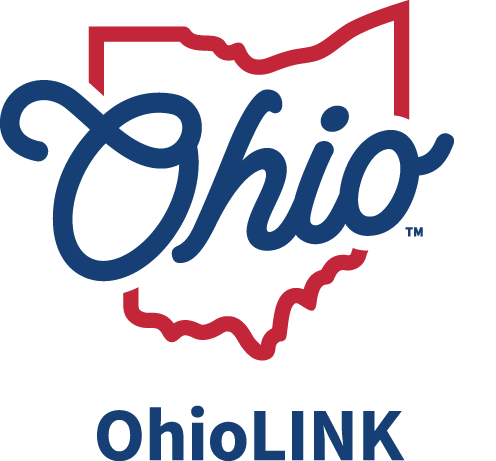Library Advisory Council Coordinating Committee
The OhioLINK Library Advisory Council Coordinating Committee (LACCC), with the OhioLINK Executive Director, coordinates the ongoing efforts of the Library Advisory Council to cooperatively and cost-effectively acquire, provide access to, and preserve an array of print and digital scholarly resources; to efficiently share the collections among member libraries; and to host access to digital content that advances teaching, learning, and research.
Library Advisory Council
Reviews and approves all policies for carrying out the OhioLINK program as proposed by the four standing committees. Discusses and approves major funding measures. Participates in strategic planning. Consists of library directors from all public universities (including two private universities), and representatives from independent and two year colleges.
Policy Teams
The standing policy teams are responsible for identifying issues, discussing proposed changes or solutions, and proposing membership‐wide commitment, policies, and procedures to the Library Advisory Council. In general, these bodies will deal with decisions that require financial commitments or other membership‐wide agreements to ensure that OhioLINK functions as a cooperative venture.
Cooperative Information Resources Management Team
Focuses on cooperative resource management issues, both electronic and print, and recommends new policies and procedures. Makes recommendations to the Library Advisory Council on renewals of existing resources and acquisition of new resources for OhioLINK. Responsible for the assessment and analysis of membership‐wide resources using the appropriate metrics, including deselection and recommendations for management of purchased shared content in OhioLINK locally loaded platforms; performs analyses and makes recommendations about shared print policy as appropriate. (Revised Jan 2018)
Database Improvement and Discoverability Team
Focuses on metadata as it relates to integration between shared systems and local systems, authority work, database integrity and impact of displays and searching of metadata on end users in shared or integrated systems. Responsible, as appropriate, for evaluating OhioLINK central and contributing ILS/LMS systems as they relate to managing shared metadata.(Revised Jan 2018)
Intercampus Services Committee Team
Recommends policies and procedures for statewide resource sharing between institutions. ICS coordinates OhioLINK circulation ‐‐ sometimes referred to as PCIRC (patron‐initiated circulation) ‐‐ among local sites and between local and the central site. This includes, but is not limited to: analysis of consortial courier service; the recommendation of and updates to policies related to the implementation of PCIRC such as fines, reimbursements for lost material, and loan rules; and documentation of consortial processes necessary for PCIRC. The committee also oversees document delivery systems for all types of materials including books, media, and journal articles between member institutions, and between OhioLINK and peer networks such as SearchOhio. (Revised Jan 2018)
User Experience Policy Team
The User Experience (UX) Policy Team recommends policies and best practices on libraries’ use of the patron-facing interfaces of the Library Services Platform based on current accessibility standards, and monitors and reviews updates and changes to those interfaces.
Implementation Teams
Implementation Teams are responsible for carrying out any necessary standardization of procedures, technology, and information at each institution to ensure the smooth integration of systems and a consistent information environment for OhioLINK central and distributed operations. Implementation Teams both carry out necessary tasks and procedures and provide feedback to OhioLINK staff and their peer community on operations and technology.
Accessibility Implementation Team (ACCIT)
The Accessibility Implementation Team (ACCIT) acts on digital accessibility remediation and support requests in conjunction with appropriate local staff and the OhioLINK central office to ensure that OhioLINK’s shared e-resources are available to all. The Team is also responsible for communicating information about accessibility as it relates to OhioLINK shared collections and services to relevant local staff.
Lead Implementers (Leads)
Lead Implementers are directly responsible for adjusting and/or communicating to the relevant local staff changes to ILS settings and integration with INN‐Reach, the OhioLINK Office Catalog, Authentication and IP systems, Link Resolver settings, Database Discovery Layers, and other relevant systems. Because of the nature of Leads, they may handle technical information from OhioLINK, any of the policy teams, OH‐TECH, and vendors
PCIRC Team
The function of the PCIRC implementation team is to act on decisions made by ICS/LAC/OhioLINK to adjust and standardize the necessary local policies, technical settings and procedures to ensure the smooth functioning of shared resources.
E-Resources Team
The function of the E‐Resource implementation team will be to act on decisions made by CIRM in terms of packages, titles, etc. and to respond to CIRM and OhioLINK requests for data (usage, budget, title lists, etc.) to support negotiations and shared resource analysis.
Adjunct Teams
These teams include OhioLINK library staff members, but are broader in scope and intersect with other organizations or units outside of OhioLINK and member libraries. Their responsibilities, charges, and scope are usually determined outside of OhioLINK governance structures.
Electronic Theses and Dissertations Center Advisory Council
This team represents the interests of Electronic Theses and Dissertations (ETD) Center member institutions and authors to OhioLINK and the OH‐ TECH consortium for the administration and development of the OhioLINK ETD Center as a leading participant in the global ETD community.
eTutoring Advisory Committee
This team represents the interests of the eTutoring Program participants to OhioLINK by providing feedback and guidance when the entire eTutoring Collaborative is not able to meet collectively.

